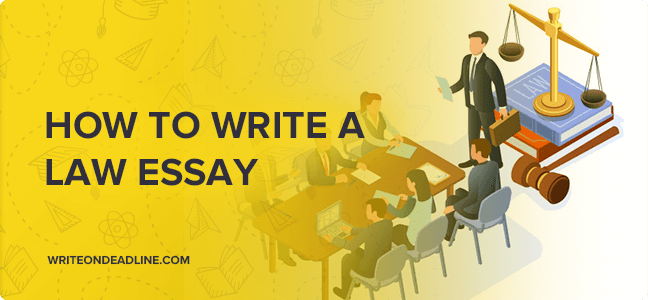How to Write a Law Essay: Full Guide

Table of Contents
Introduction to Law Essays
What is a Law Essay?
A law essay is a scholarly piece of writing which presents a legal analysis, argument, or discussion on a particular legal issue or topic. It requires a student or legal professional to present a well-reasoned argument based on legal principles and evidence.
Importance of Clarity, Structure, and Argumentation
Clarity and structure are paramount in a law essay as they facilitate the reader’s understanding. Argumentation is the vehicle through which the writer conveys their analysis, employing logic and legal reasoning to persuade the reader of their viewpoint.
Understanding the Question
Breaking Down the Essay Question
- Read Carefully: Understand what the question asks of you.
- Highlight Key Terms: Identify action words and legal concepts.
- Clarify Uncertainties: If any part of the question is unclear, seek clarification.
Identifying Key Terms and Issues
- Definition of Terms: Define legal terms to set the parameters of your essay.
- Issues to Address: Distinguish the main issues that will form the crux of your argument.
Research Techniques
Primary vs. Secondary Sources of Law
- Primary Sources: These are texts of law themselves, such as statutes, cases, regulations.
- Secondary Sources: These include academic articles, textbooks, and legal commentaries that provide analysis of primary sources.
Utilizing Law Libraries and Online Databases Effectively
- Law Libraries: Offer comprehensive access to physical and digital legal resources.
- Online Databases: Platforms like Westlaw or LexisNexis provide extensive legal databases for research.
Structuring the Essay
The Significance of a Clear Introduction, Body, and Conclusion
- Introduction: Outlines the issue, states the thesis, and describes the structure of the essay.
- Body: Presents arguments in a logical sequence, each supported by evidence and analysis.
- Conclusion: Summarizes the main points and restates the thesis in light of the arguments presented.
How to Outline Arguments Logically and Coherently
- Point, Evidence, Explanation: For each argument, state your point, back it with evidence, and explain its relevance.
- Logical Flow: Ensure each argument naturally leads to the next.
- Coherence: Make sure all parts of the essay work together to support the thesis.
Legal Argumentation
Developing Arguments and Counter-Arguments
- Constructing Your Argument: Develop a clear, concise thesis statement and support it with legal reasoning and evidence.
- Anticipating Counter-Arguments: Identify potential opposing views and prepare rebuttals to strengthen your position.
- Using Precedent: Analyze case law to support your argument, showing how past decisions apply to your issue.
- Statutory Interpretation: Use the rules of interpretation to argue how legislation should be applied to your case.
Referencing and Citations
Proper Use of a Legal Citation Guide
- Choosing a Citation Style: Adhere to the prescribed citation style, such as OSCOLA or Bluebook.
- Consistency: Be consistent in formatting all your citations according to the chosen guide.
Avoiding Plagiarism and Paraphrasing
- Originality: Always credit original authors for their ideas.
- Paraphrasing: Learn to paraphrase legal concepts accurately without changing their meaning.
Writing Style and Language
Appropriate Language for Legal Writing
- Formality: Use a formal tone that reflects the seriousness of the subject matter.
- Precision: Choose words that convey your meaning precisely.
Clarity in Argumentation
- Avoiding Legalese: Use plain language where possible to make your writing accessible.
- Simplicity: Complex ideas should be broken down into simple, understandable statements.
Editing and Proofreading
Techniques for Effective Editing
- Structure: Check that your essay has a clear introduction, body, and conclusion.
- Clarity: Remove any ambiguity and ensure your points are clear and concise.
Importance of Feedback
- Peer Review: Have peers or mentors review your work to gain different perspectives.
- Incorporate Feedback: Use constructive criticism to refine and strengthen your essay.
Conclusion
Summarizing Arguments
- Restate Key Points: Briefly summarize the main arguments of your essay.
- Conciseness: Keep your conclusion short and to the point, avoiding the introduction of new information.
Reiterating the Response to the Essay Question
- Answer the Question: Clearly state how your essay has addressed the central question.
- Closing Statement: End with a strong closing statement that encapsulates the essence of your argument.
In crafting your law essay, integrating these elements of legal argumentation, proper referencing, careful language choice, and diligent editing will contribute to a persuasive and scholarly piece of writing. Always remember to answer the essay question directly and fully, using a structured argument supported by legal sources and your own critical analysis.

